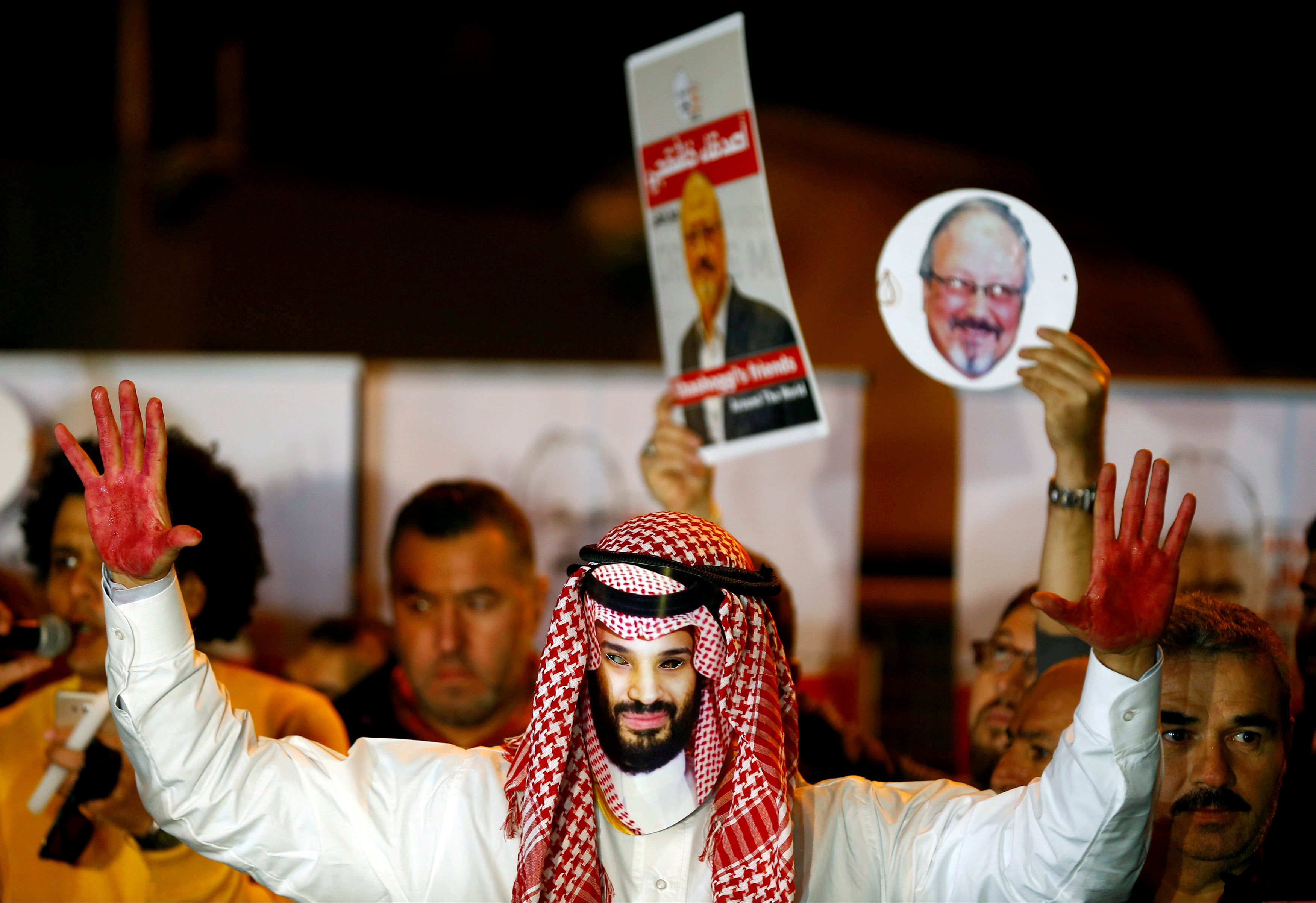
By Stephen Kalin
RIYADH (Reuters) – Saudi Arabia’s public prosecutor is seeking the death penalty for five out of 11 suspects charged in the murder of journalist Jamal Khashoggi, his office said on Thursday, as the kingdom tries to overcome its biggest political crisis in a generation.
Khashoggi, a royal insider turned critic of Saudi policy, was killed in the country’s Istanbul consulate on Oct. 2, after a struggle, by a lethal injection dose, deputy public prosecutor and spokesman Shalaan al-Shalaan told reporters.
His body was dismembered, removed from the building and handed over to a “local cooperator”, whose identity has not been confirmed, he added. The whereabouts of Khashoggi’s remains are unknown.
Shalaan said the Washington Post columnist was murdered after “negotiations” for his return to the kingdom failed and that the killing was ordered by the head of a negotiating team sent to repatriate Khashoggi after he decided it was unfeasible to remove him from the consulate.
Shalaan said the order to repatriate Khashoggi had come from former deputy intelligence chief General Ahmed al-Asiri, who was sacked last month following an initial investigation.
Asked if Saudi Crown Prince Mohammed bin Salman played a role in the murder, he said: “He did not have any knowledge.”
Turkish President Tayyip Erdogan has said the order for the operation came from the highest level of Saudi leadership but probably not King Salman, putting the spotlight instead on his 33-year-old heir Prince Mohammed.
U.S. President Donald Trump has suggested ultimate responsibility lies with the prince as de facto ruler.
Riyadh initially denied any knowledge of Khashoggi’s disappearance, then offered contradictory explanations including that he was killed in a rogue operation. The case has sparked a global outcry, opened the kingdom to possible sanctions and tarnished the image of Prince Mohammed.
Some details provided on Thursday again contradicted previous versions, none of which mentioned a drug-induced death and one of which called the killing premeditated based on information provided by Turkish authorities.

FILE PHOTO: A demonstrator holds a poster with a picture of Saudi journalist Jamal Khashoggi outside the Saudi Arabia consulate in Istanbul, Turkey October 25, 2018. REUTERS/Osman Orsal/File Photo
DEATH PENALTY
Turkish Foreign Minister Mevlut Cavusoglu said that the measures announced by the Saudi public prosecutor’s office were “positive but insufficient”, and repeated Ankara’s demand that the 15-man team be tried in Turkey.
“The Public Prosecutor has requested the death penalty for five individuals who are charged with ordering and committing the crime and for the appropriate sentences for the other indicted individuals,” Shalaan said, without naming them.
He said 11 out of 21 suspects have been indicted and will be referred to court, while investigations with the remaining suspects will continue to determine their role in the crime.
A travel ban has been imposed on a former top aide to the crown prince, Saud al-Qahtani, while investigations continue over his role, Shalaan said.
He said Qahtani had coordinated with Asiri, meeting the operatives ahead of their journey to Istanbul to brief them on the journalist’s activities.
Qahtani has already been fired from the royal court, but four sources based in the Gulf told Reuters this week that he was still at liberty and continued to operate discreetly.
A senior government official previously identified the head of the negotiating team as Maher Mutreb, an aide to Qahtani who has appeared in photographs with Prince Mohammed on official visits this year to the United States and Europe.
Six weeks after the murder, Turkey is trying to keep up pressure on Prince Mohammed and has released a stream of evidence that undermined Riyadh’s early denials of involvement.
Turkey says it has recordings related to the killing which it has shared with Western allies. Erdogan said the recordings are “appalling” and shocked a Saudi intelligence officer who listened to them, Turkish media has reported.
Last month two intelligence sources said that Qahtani gave orders over Skype to Khashoggi’s killers. More recently, a government source familiar with the matter said Qahtani featured prominently throughout the recordings.
Shalaan declined to confirm or deny whether Saudi authorities heard the recordings. He said Riyadh asked Ankara to share witness testimonies and hand over Khashoggi’s phones.
(Additional reporting by Maha El Dahan and Asma Al Sharif in Dubai; Writing by Tuqa Khalid and Ghaida Ghantous; Editing by Gareth Jones, William Maclean)















